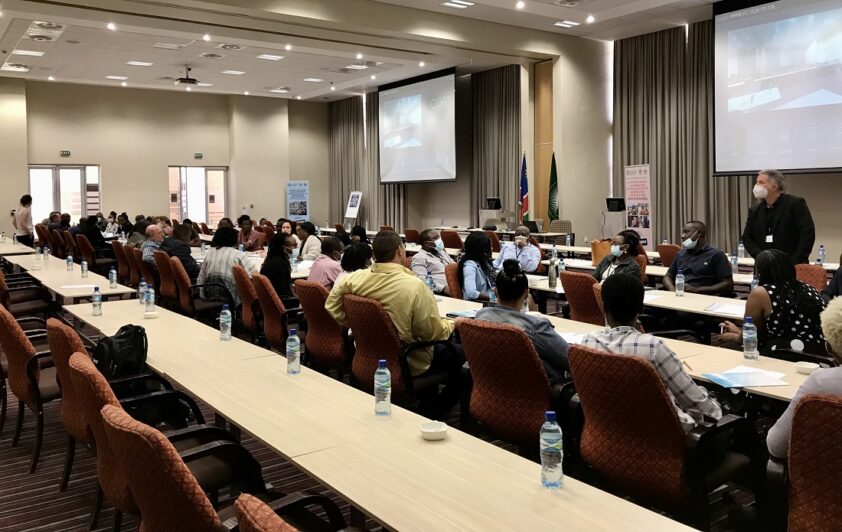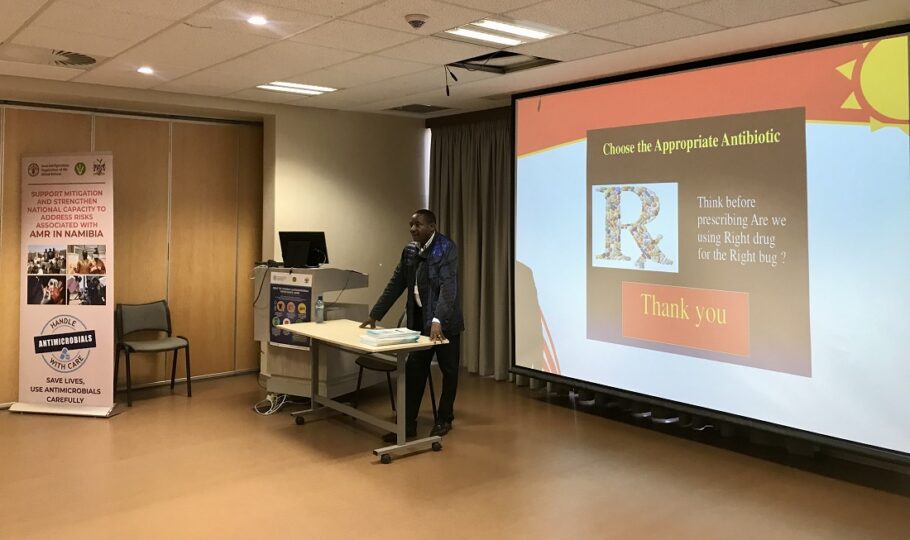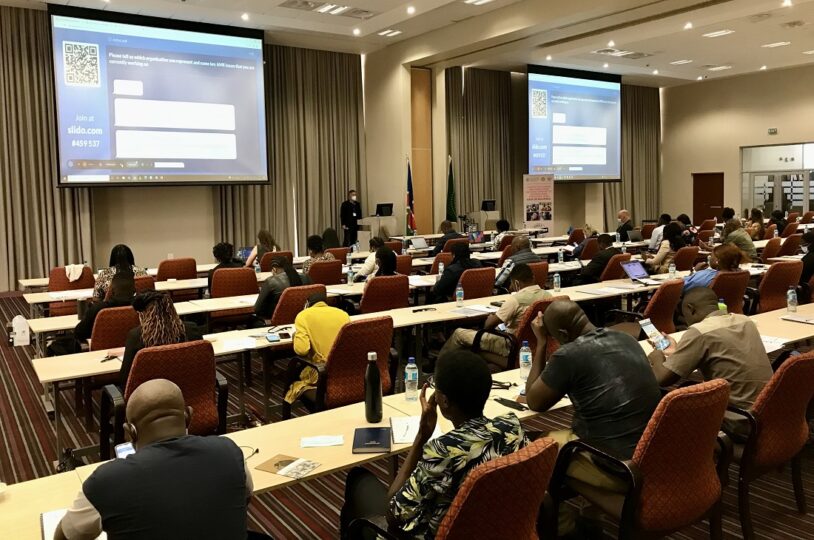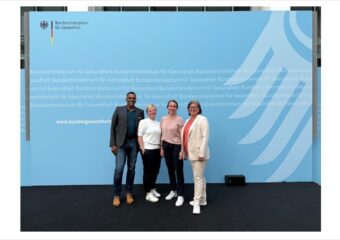National AMR Stakeholder Meeting & Workshop in Namibia
Combating antimicrobial resistance (AMR) is of utmost international and national interest. National action plans (NAP AMR) aim to strategically counter the spread of the “silent pandemic”. The current state of implementation in Namibia has now been captured through a multi-day workshop.

As part of the Global Health Protection Programme (GHPP) ‘One Health Namibia’, backed and financed by the Federal Ministry of Health of Germany, support of the Republic of Namibia in order to control antimicrobial resistance (AMR) plays a central role, in line with the urgency that the topic warrants: each year, 700,000 people die of AMR. Without action, the death toll could rise even higher, to as many as 10 million deaths annually by 2050 and cause a 3.8 percent reduction in annual gross domestic product, as identified in a 2017 report entitled ‘Drug-Resistant Infections: A Threat to Our Economic Future’. The world’s poorest people, those living in low- and middle-income countries, are disproportionately vulnerable and affected.
It is against this backdrop that the Directorate of Veterinary Services under the Ministry of Agriculture Water and Land Reform (MAWLR) elected to cooperate closely with the Friedrich-Loeffler-Institut (FLI), under an joint agreement, in order to focus on a number of AMR-resolutions that emerged from a prior stakeholder meeting & workshop, conducted at the Central Veterinary Laboratory (CVL) in March 2020.
In order to understand the actual AMR landscape in Namibia, it was agreed in January 2022 with the Director of the CVL, Dr. Siegfried Khaiseb, to plan for a national AMR stakeholder meeting under the GHPP Project “One Health Namibia”. The resident One Health Namibia project coordinator from the FLI, Dr. Frank Busch, undertook the early planning phase together with the AMR focal point at the CVL, Dr. Lee-Monique Anderson, supported by Dr. Sylvia Dreyer from the FLI.

70 participants from various sectors and disciplines were welcomed by Dr. Albertina Shilongo, the Chief Veterinary Officer of the Republic of Namibia (CVO). In addition, Dr. Siegfried Khaiseb and Dr. Frank Busch welcomed the invited AMR stakeholders that included representatives from the Ministry of Health and social services (MoHSS), the Food and Agricultural Organisation (FAO), the Namibia Institute of pathology (NIP), the Namibia Agricultural Union (NAU); journalists, private vets and state veterinarians, industry stakeholders from Meatco, Meatboard, Swavet, Agra; AMR focal points from public health & veterinary health; chief veterinary officers & deputy chief veterinary officers from the Directorate of Veterinary Services, representatives from the Central Veterinary Laboratory (CVL), Namibia Medicines Regulatory Council (NMRC), University of Namibia (UNAM), including the School of Veterinary Medicine, Robert Koch Institute from Germany (RKI), Namibia University of Science and Technology (NUST), Namibian Veterinary Council, DiagnoLab, Namibia Media Holdings (NMH), the Press Officer from the Ministry of Agriculture, Water and Land Reform and others.
A number of speakers presented their AMR activities to allow the audience and the workshop participants to receive a better general overview on the topic in their country and on activities beyond the Namibian border.
As part of the workshop section, participating stakeholders reviewed selected aspects of the Namibian antimicrobial resistance national action plan (NAAP), delving into measures, actions and deliverables relating to stakeholders (government, partners) to prioritise and implement AMR activities with a focus on an action table for both the DVS and the CVL. This included the assessment of One Health-based options related to data collection, data management, data analysis, resource mobilisation and financial sustainability of a Work Plan, the exploration of synergies between stakeholders and potential for cooperation for defined workstreams and the potential implementation of AMR monitoring, evaluation, surveillance using a One Health approach.
Conclusion
Participants were keen to engage with implementation activities as set out in the NAAP and expressed their wish for regular feedback from the leading Ministries. Participants hoped that more representatives could be allowed to participate in the established technical working groups (TWG’s) and were keen to receive regular updates from the TWGs in AMR matters. In addition, it was desired to meet at shorter intervals so that the momentum would not be lost and dialogues could be kept open.
The FLI plans to facilitate the next AMR stakeholder meeting & workshop which could be held, in conjunction with the CVL, in the first quarter of 2023, as per the request of the 2022 participants.
Date: August 2022








